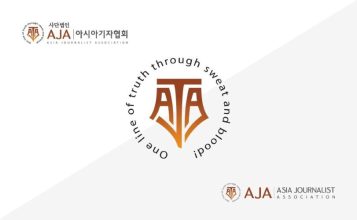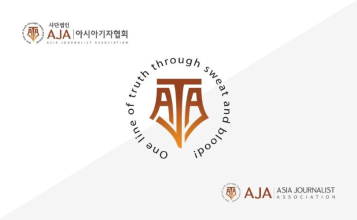AJA Newsbites – November 11, 2025

AJA Newsbites is a curated roundup of major news and developments from across Asia, brought to you by members of Asia Journalist Association (AJA)
Lee Sang-ki, THE AsiaN, Korea
Justice Minister Chung Sung-ho admitted on Nov. 10 that he had asked prosecutors to “carefully consider” not appealing the Daejang-dong case, reversing his earlier claim of “no involvement.” The move, seen as de facto interference, bypassed formal procedures and may violate prosecution laws. Three of the five private developers received lighter sentences than the prosecution demanded, contradicting Chung’s claim. Opposition parties suspect presidential influence, noting Chung’s close ties to President Lee Jae-myung. The presidential office denied issuing any directive, but public pressure for an independent probe is mounting.
Chhay Sophal, Cambodia News Online, Cambodia
Cambodian Prime Minister Samdech Thipadei Hun Manet has praised his nation’s signature fragrant rice, the “Angkor Jasmine” certified brand of the Romdul variety, for winning the World’s Best Rice Award at the World Rice Conference 2025.
This marks the seventh time the Kingdom has received this prestigious recognition — the first in 2012, followed by wins in 2013, 2014, 2018, 2022, and 2024. In his congratulatory message on Sunday, Hun Manet stated, “We would like to emphasize that this achievement is the result of the hard work of Cambodian farmers who have been dedicated to producing high-quality rice, ensuring that the value and excellence of Cambodian rice are recognized on the international stage.”
It is especially meaningful that Cambodia’s victory at the World’s Best Rice 2025 competition took place on home soil, during the World Rice Conference 2025, organized by The Rice Trader and held in Phnom Penh from November 7–9, 2025.
Leo Nirsha Darshan, Express Newspapers, Sri Lanka
Three workers were found dead at a land-based fish farm in Goseong, South Gyeongsang Province, prompting police to open an investigation.
According to the Gyeongnam Provincial Police Agency on the 10th, the victims—a Korean man in his 50s, who was the site manager, and two Sri Lankan employees in their 20s and 30s—were discovered dead inside a large reservoir measuring 4 meters wide, 3 meters long, and 2 meters deep at around 8:30 p.m. on the 9th. The reservoir was nearly full of water at the time. Police launched the investigation after receiving a report at 7:38 p.m. from the family of the Korean man, who said, “My father is not responding.” One of the foreign workers was reportedly dressed in work clothes, while the other two were in casual attire.
Authorities plan to conduct autopsies on the deceased and are investigating the company to determine the exact cause of death, including the possibility of a workplace safety accident or negligence.
Kuban Abdymen, Centralasianlight, Kyrgyzstan
Kyrgyzstan has been successfully elected to the UNESCO Executive Board for the 2025–2029 term during the 43rd session of the General Conference, held on 7 November 2025 in Samarkand. The country received 163 votes, alongside Malaysia (167), India (163), China (162), Thailand (161), and Japan (159).
The Executive Board serves as one of UNESCO’s key governing bodies, responsible for preparing the work of the General Conference, implementing its decisions, and defining strategic and programmatic priorities. The Board is composed of 58 member states elected for four-year terms.
This marks Kyrgyzstan’s second consecutive term on the Board, following its previous membership from 2019 to 2023. The country has also been actively involved in various UNESCO committees, including those on Intangible Cultural Heritage, World Heritage, and International Communication Programs.
Kyrgyzstan’s re-election underscores its continued commitment to advancing UNESCO’s mission, promoting sustainable development, and fostering intercultural dialogue. Its renewed membership enables the nation to contribute to shaping strategic directions, advancing regional priorities in Central Asia, and strengthening international cooperation in education, science, culture, and communication.
Pooneh Nedai, Shokaran Magazine, Iran
Iran is going through one of its driest periods in the past 50 years. Many regions are facing severe drought, low rainfall, and widespread water shortages, while surface water levels have dropped to their lowest point in decades. According to the National Center for Climate and Drought Crisis Management, no significant rainfall is expected in the near term, though winter precipitation may return to near-normal levels. Tehran is experiencing its driest year in six decades, and major cities such as Mashhad, Tabriz, and Karaj are suffering from serious water stress. Declining rainfall combined with rising demand has deepened the crisis, leading to excessive reliance on underground water resources. Some reservoirs have now fallen to dangerously low levels. Experts warn that even if winter rainfall returns to normal, Iran’s long-term water crisis will continue unless comprehensive planning and sustainable water management measures are implemented.
ⓒ THE AsiaN | All rights reserved
This content is copyrighted by THE AsiaN. If you wish to share it, please do so without modifying the original text and always include the source link. Unauthorized editing or sharing without proper attribution may result in legal consequences.


